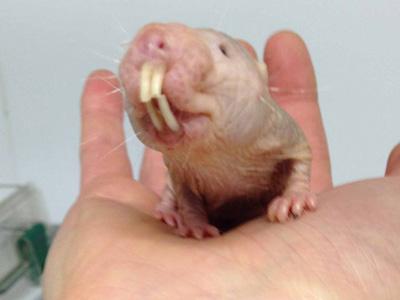
Submitted by Abbi Abbioui on Mon, 24/04/2017 - 10:06
Dr Ewan St. John Smith was interviewed on BBC Radio Cambridgeshire to discuss a recent study that was published in Science last week...
Dr Ewan St. John Smith was interviewed on BBC Radio Cambridgeshire (01:53:20) to discuss a recent study that was published in Science last week on which he was an author: Fructose-driven glycolysis supports anoxia resistance in the naked mole-rat. At rest the human brain uses ~25% of the body's energy. Energy production is powered by glucose and oxygen. When someone has a stroke, blood and oxygen stop flowing to part of the brain causing nerve cells to die as they cannot make energy (nerve cell death underlies the disabilities resulting from a stroke). Led by investigators at the Max Delbrück Centre for Molecular Medicine in Berlin and the University of Illinois at Chicago, this recent study found that naked mole-rats can live for up to 18 minutes in the absence of oxygen due to their ability to utilise fructose as an energy source. This work enhances understanding of how nerve cells can function in the absence of oxygen and might lead to work that uncovers novel treatments to prevent brain damage in stroke patients. Dr Smith runs the University of Cambridge Naked Mole-Rat Initiative that brings researchers together understand the highly unusual biology of this rodent: living healthily for 30 years, highly resistant to cancer, insensitive to certain painful stimuli and demonstrating extreme hypoxia resistance.
